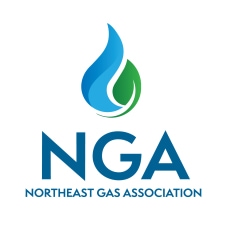Policy Spotlight: Massachusetts Senate Considers Climate Legislation
On Tuesday, June 25, the Massachusetts State Senate passed a major climate bill, S. 2829, titled An Act upgrading the grid and protecting ratepayers. The wide-ranging bill proposes several major changes, including permitting and siting reforms, and addresses the sale and distribution of geothermal energy by gas local distribution companies (LDC). The proposed legislation also includes changes that could have an impact on LDCs’ ability to safely, reliability, and affordably serve their customers.
Impacts on Safety, Customer Choice, Affordability, and Reliability
Some of the changes proposed by the legislation involve amendments to the Gas System Enhancement Plans (GSEPs), established by the 2014 Gas Leaks Act. As a result of the 2014 Gas Leaks Act, for nearly a decade, gas utilities in Massachusetts have collaborated with regulators to replace aging natural gas infrastructure, significantly reducing emissions and enhancing community safety. Since the inception of GSEP in 2015, gas utilities in Massachusetts have eliminated approximately 8,000 gas leaks, reducing methane emissions by around 60,000 metric tons or the equivalent of greenhouse gas emissions from more than 4 billion miles driven by an average gasoline-powered passenger vehicle. This program has been a major success for both safety, and emissions reductions. The proposed changes to this program could inadvertently prolong the use of older, more leak-prone pipes, increasing emissions and compromising public safety.
The Senate also proposed a number of changes that would restrict gas utilities’ ability to serve customers seeking gas services and require utilities to move existing customers off of the natural gas system rather than maintaining and upgrading infrastructure. While NGA strongly believes in the transition to clean energy, limiting customer choice and prematurely phasing out reliable energy sources without feasible alternatives will impact reliability and increase GHG emissions. Earlier this month, during the high heat across the Northeast, New England’s grid operator declared an emergency, and utilized oil powered generating assets, with higher GHG emission rates, to meet the region’s demand. Changes that limit choice also risk having a significant impact on affordability. Natural gas continues to be the most affordable option for home heating. Until new technologies and infrastructure can fully support a fossil-fuel-free future, natural gas must remain a critical component of our energy mix and it would be irresponsible to coerce consumers into utilizing more costly and less reliable options.
Geothermal Provisions
We are encouraged by the Senate’s support for developing a geothermal energy economy in Massachusetts, a sector where local gas utilities in the Northeast are leaders with several pioneering pilot projects. These projects showcase the innovative spirit of our industry and our commitment to implementing a broad range of clean energy solutions to meet our customers' diverse needs and opportunities.
Other Provisions
We also applaud the state legislature’s efforts to improve siting and permitting, which will facilitate the construction of much-needed clean energy sources. In addition to the bill’s siting provisions, it would also ban “competitive electric suppliers.”
The bill includes several other noteworthy gas-related provisions. Some of these provisions include requiring the Department of Public Utilities (DPU) to establish discounted rates for low- and moderate-income customers, requiring greater scrutiny of proposals to expand service territories, and requiring gas companies to file plans with DPU with annual targets of infrastructure measures and decommissioning proposals.
Conclusion
Natural gas utilities in the northeast are at the forefront of the fight against climate change, while simultaneously ensuring our customers have access to reliable and affordable energy. Our members are investing in reducing emissions from their operations, ensuring safety, and developing new technologies. However, several provisions in the Senate’s legislation raise concerns about potential impacts on safety, consumer choice, and energy costs.
Over the coming weeks, the Massachusetts State House of Representatives will consider its own climate legislation. We will continue monitoring the debate on Beacon Hill.
If you have questions, or if NGA can be of service to you or your teams as you consider the impacts of this legislative activity, please reach out to crodrick@northeastgas.org


